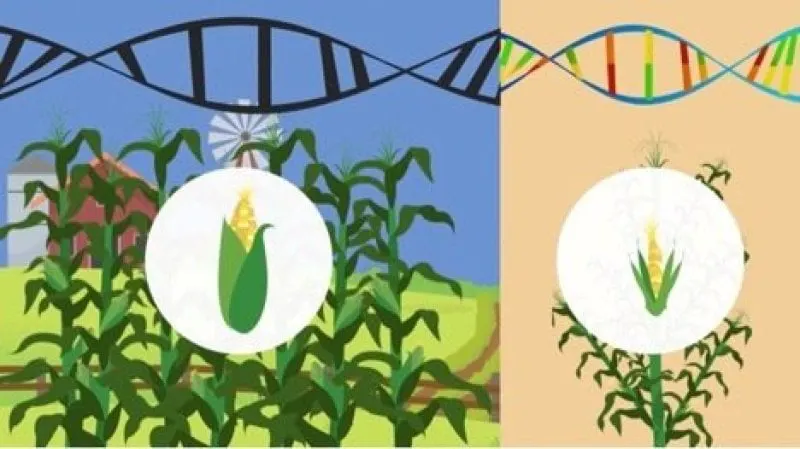Thanks to gene editing, another biotech-driven farming revolution might be ‘just around the corner’
Thanks to gene editing, another biotech-driven farming revolution might be ‘just around the corner’


The basic principle of crop breeding is to first discover and then select for variants with desired traits. While selection is relatively easy, discovery is more challenging. Conventional breeding for domestication and crop improvement have unquestionably revolutionized agriculture and our society.
But to further explore the potential of agriculture to feed an ever-growing population, larger crop diversity needs to be unlocked. The gene editing and RNA viral transfection technologies developed over recent years allow precise engineering of desirable variants with unprecedentedly high efficiency and resolution, greatly expanding the range of variations available and reducing our reliance on naturally existing mutations.
…
CRISPR–Cas breeding is more efficient than mutation breeding because mutagenesis is targeted to genes known to control desirable traits. Moreover, transgene-free plants can be easily obtained by transiently expressing CRISPR proteins or by segregating out constitutively expressed CRISPR. Gene-edited crops could thus avoid regulations against the cultivation of GMOs.
Crop breeding need no longer rely on naturally occurring mutations, but instead artificially generated variations can be the raw material for further breeding. A much broader spectrum of phenotype space is ready for exploration, allowing development of optimal phenotypes adapted to heterogeneous environments on Earth, or even space. A new biotechnology-driven revolution in agriculture could be just around the corner.
Read the original post

 | Videos | More... |

Video: Nuclear energy will destroy us? Global warming is an existential threat? Chemicals are massacring bees? Donate to the Green Industrial Complex!
 | Bees & Pollinators | More... |

GLP podcast: Science journalism is a mess. Here’s how to fix it

Mosquito massacre: Can we safely tackle malaria with a CRISPR gene drive?

Are we facing an ‘Insect Apocalypse’ caused by ‘intensive, industrial’ farming and agricultural chemicals? The media say yes; Science says ‘no’
 | Infographics | More... |

Infographic: Global regulatory and health research agencies on whether glyphosate causes cancer
 | GMO FAQs | More... |

Why is there controversy over GMO foods but not GMO drugs?

How are GMOs labeled around the world?

How does genetic engineering differ from conventional breeding?
 | GLP Profiles | More... |

Alex Jones: Right-wing conspiracy theorist stokes fear of GMOs, pesticides to sell ‘health supplements’




 Trust issues: What happens when therapists use ChatGPT?
Trust issues: What happens when therapists use ChatGPT? Fighting deforestation with CO2: Biotechnology breakthrough creates sustainable palm oil alternative for cosmetics
Fighting deforestation with CO2: Biotechnology breakthrough creates sustainable palm oil alternative for cosmetics California, Washington, Oregon forge immunization alliance to safeguard vaccine access against federal undermining
California, Washington, Oregon forge immunization alliance to safeguard vaccine access against federal undermining Viewpoint — Fact checking MAHA mythmakers: How wellness influencers and RFK, Jr. undermine American science and health
Viewpoint — Fact checking MAHA mythmakers: How wellness influencers and RFK, Jr. undermine American science and health 30-year-old tomato line shows genetic resistance to devastating virus
30-year-old tomato line shows genetic resistance to devastating virus Viewpoint: Video — Big Solar is gobbling up productive agricultural land and hurting farmers yet providing little energy or sustainabilty gains
Viewpoint: Video — Big Solar is gobbling up productive agricultural land and hurting farmers yet providing little energy or sustainabilty gains The free-range chicken dilemma: Better for birds, but with substantial costs
The free-range chicken dilemma: Better for birds, but with substantial costs ‘You have to treat the brain first’: Rethinking chronic pain with Sanjay Gupta
‘You have to treat the brain first’: Rethinking chronic pain with Sanjay Gupta
